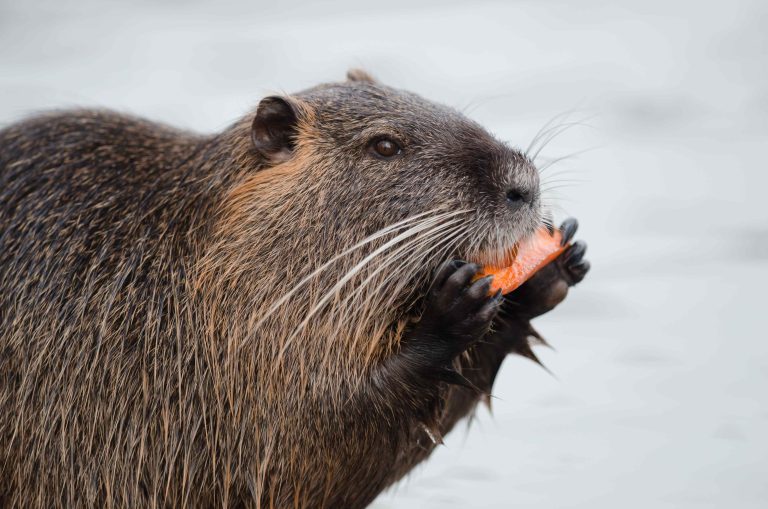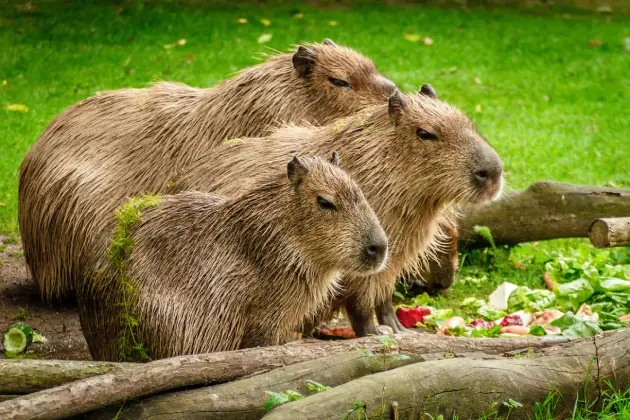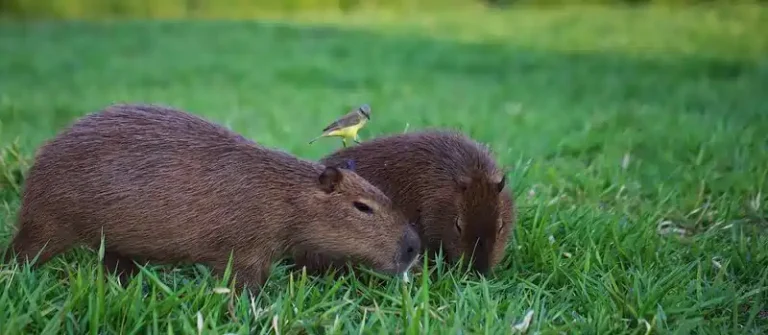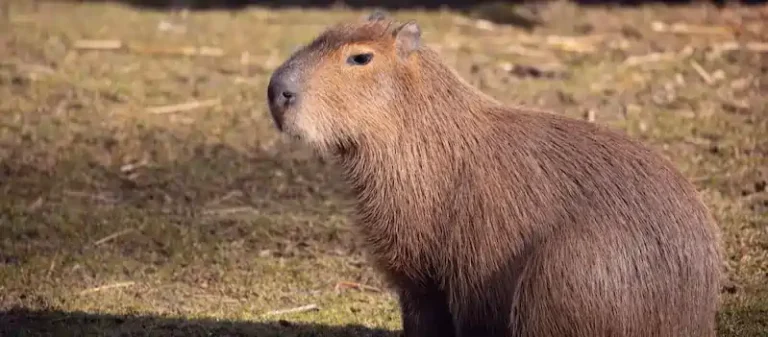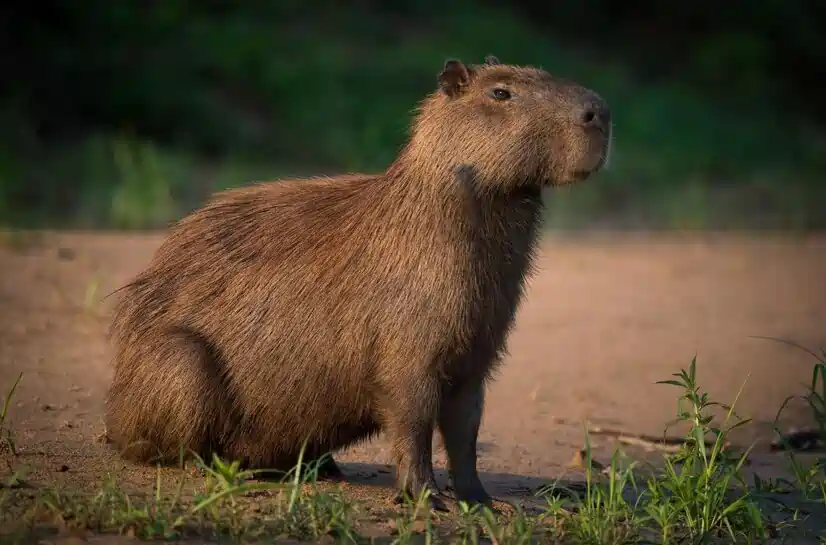
Capybaras are friendly and social animals that have become increasingly popular as pets. Known for their calm nature and affectionate behavior, they are often seen as ideal companions for people who have the time and space to care for them. However, before you decide to bring a capybara into your home, it’s important to understand whether it’s legal to own one in your state. If you live in New Jersey, you might be wondering if you can legally own a capybara as a pet. In this article, we will discuss the laws surrounding capybara ownership in New Jersey, what it takes to care for one, and whether you should consider adopting this unique pet.
What Is a Capybara?
Before diving into the details of ownership, it’s essential to understand what a capybara is and why people are so drawn to these animals. Capybaras are the largest rodents in the world, growing up to four feet in length and weighing as much as 140 pounds. Native to South America, capybaras live in groups near rivers and wetlands. These animals are semi-aquatic, which means they enjoy swimming and spend a significant amount of time in the water.
Capybaras are known for their calm and gentle demeanor. They are highly social animals that thrive in the company of others. They can bond with humans, other capybaras, and even other animals like dogs and cats. As herbivores, their diet mainly consists of grasses, fruits, and vegetables.
Despite their size, capybaras are affectionate and love interacting with people. They are often seen as friendly companions and are sometimes even used in therapy programs due to their calm nature. However, owning a capybara requires a lot of responsibility and understanding of their unique needs.
Can You Own a Capybara in New Jersey?
Now that you know what a capybara is, let’s address the most important question: Can you own a capybara in New Jersey? The short answer is no, at least not without specific legal requirements. In New Jersey, owning a capybara as a pet is not generally allowed due to strict regulations governing exotic animals.
Why Are Capybaras Restricted in New Jersey?
New Jersey has a set of laws that regulate the ownership of exotic pets, and capybaras are considered exotic animals. The state’s laws aim to protect both the public and animals by preventing the ownership of animals that could pose risks to human safety or the environment. Although capybaras are not typically dangerous, they are large animals that require specific care, space, and attention.
New Jersey’s laws classify many exotic species, including capybaras, as restricted or prohibited. This means that, in general, individuals cannot own these animals unless they have special permits. These regulations are in place to ensure that animals are kept in environments where their needs can be met and to prevent public safety concerns.
What Are the Laws in New Jersey Regarding Exotic Pets?
In New Jersey, the Division of Fish and Wildlife is responsible for regulating the ownership of exotic animals. The state prohibits the possession of certain species unless the owner meets specific criteria, such as obtaining a special permit. However, New Jersey does not currently issue permits for the private ownership of capybaras. This means that, without an exception or permit, it is illegal to keep a capybara as a pet.
At Capybara Pet Info, we always recommend checking with your local authorities to verify any specific ordinances or regulations that might apply in your area. Even if the state prohibits capybara ownership, some cities or municipalities may have different rules, but in general, capybaras are not allowed as pets in New Jersey.
What Are the Alternatives to Owning a Capybara in New Jersey?
If you’re passionate about having a capybara as a pet but live in New Jersey, you might be disappointed by the legal restrictions. However, there are still some alternatives you can consider if you’re interested in having an exotic pet.
Other Exotic Animals You Can Own in New Jersey
While capybaras are not allowed, New Jersey does allow certain exotic animals to be kept as pets. Some examples of exotic animals that are legal to own in New Jersey include:
- Small reptiles like turtles, snakes, and lizards
- Exotic birds such as parrots or cockatiels
- Ferrets (with proper permits)
Always check with your local authorities before getting any exotic animal, as different municipalities may have additional restrictions on the ownership of specific species. If you’re looking for a pet with similar traits to a capybara, you might also consider adopting a guinea pig or rabbit, which are smaller and have similar social and affectionate qualities.
Visiting Capybaras in Sanctuaries
If you can’t own a capybara in New Jersey, you may still have the opportunity to interact with these fascinating creatures. Some wildlife sanctuaries and rescue organizations may allow people to visit and learn about capybaras. These sanctuaries often focus on the conservation and protection of exotic animals and may have capybaras that you can observe and interact with in a safe environment.
Visiting capybaras in a sanctuary is a great way to enjoy their company and learn more about their needs without the legal and practical responsibilities of owning one. Many sanctuaries also offer educational programs, making it a fantastic way to get involved with wildlife preservation efforts.
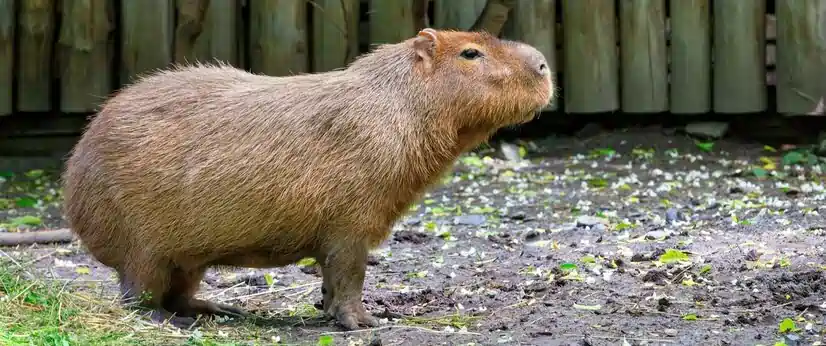
What You Need to Know About Caring for a Capybara
If you live in a state where capybara ownership is permitted or if you’re considering caring for a capybara in the future, it’s essential to understand their unique needs. Here are some key factors to keep in mind:
Space and Environment
Capybaras are large animals that need plenty of space to roam. They cannot be kept in small enclosures or cages. Ideally, they should have access to a large outdoor area where they can run, explore, and interact with other animals. Since capybaras are semi-aquatic, they also need access to water for swimming. A pond, pool, or large water feature is essential to their well-being.
Companionship
Capybaras are highly social animals that thrive in the company of others. It is strongly recommended to keep at least two capybaras together to ensure they have companionship. If you are unable to keep more than one, you must be prepared to spend a significant amount of time with your capybara to meet its social needs. Loneliness can lead to behavioral issues and stress.
Diet and Health Care
Capybaras are herbivores and need a diet that includes fresh hay, leafy greens, fruits, and vegetables. Regular veterinary care is essential to monitor their health and prevent any potential issues. You should also ensure that they have access to clean, fresh water at all times.
Behavioral Considerations
Capybaras are known for their calm and affectionate nature. However, they do require proper socialization and training to ensure they behave well in a household setting. These animals can form strong bonds with their owners, making them highly interactive and affectionate companions.
Conclusion
In New Jersey, owning a capybara as a pet is not allowed due to the state’s regulations on exotic animal ownership. Capybaras are considered exotic animals and are classified as restricted or prohibited. While this may be disappointing for those who are drawn to these gentle creatures, there are still plenty of alternatives, such as adopting other exotic pets or visiting capybaras in wildlife sanctuaries.
At Capybara Pet Info, we aim to provide helpful and accurate information for potential capybara owners. If you live in a state where capybara ownership is allowed, it’s important to ensure you can meet their unique needs and provide the right environment for them to thrive.
FAQs
1. Is it legal to own a capybara in New Jersey?
No, it is not legal to own a capybara in New Jersey due to the state’s restrictions on exotic animals.
2. Can I visit capybaras in New Jersey?
While you may not be able to own a capybara, there are wildlife sanctuaries in New Jersey where you can visit and interact with these animals.
3. What exotic animals can I own in New Jersey?
New Jersey allows the ownership of certain exotic animals, such as small reptiles, birds, and ferrets, but always check with local authorities for specific regulations.
4. How much space do capybaras need?
Capybaras need a large, outdoor space to roam, with access to water for swimming. They should not be kept in small enclosures.
5. Can I keep a single capybara?
Capybaras are highly social and should ideally be kept in pairs. If you keep a single capybara, you must be prepared to spend significant time with it to ensure it has proper social interaction.







